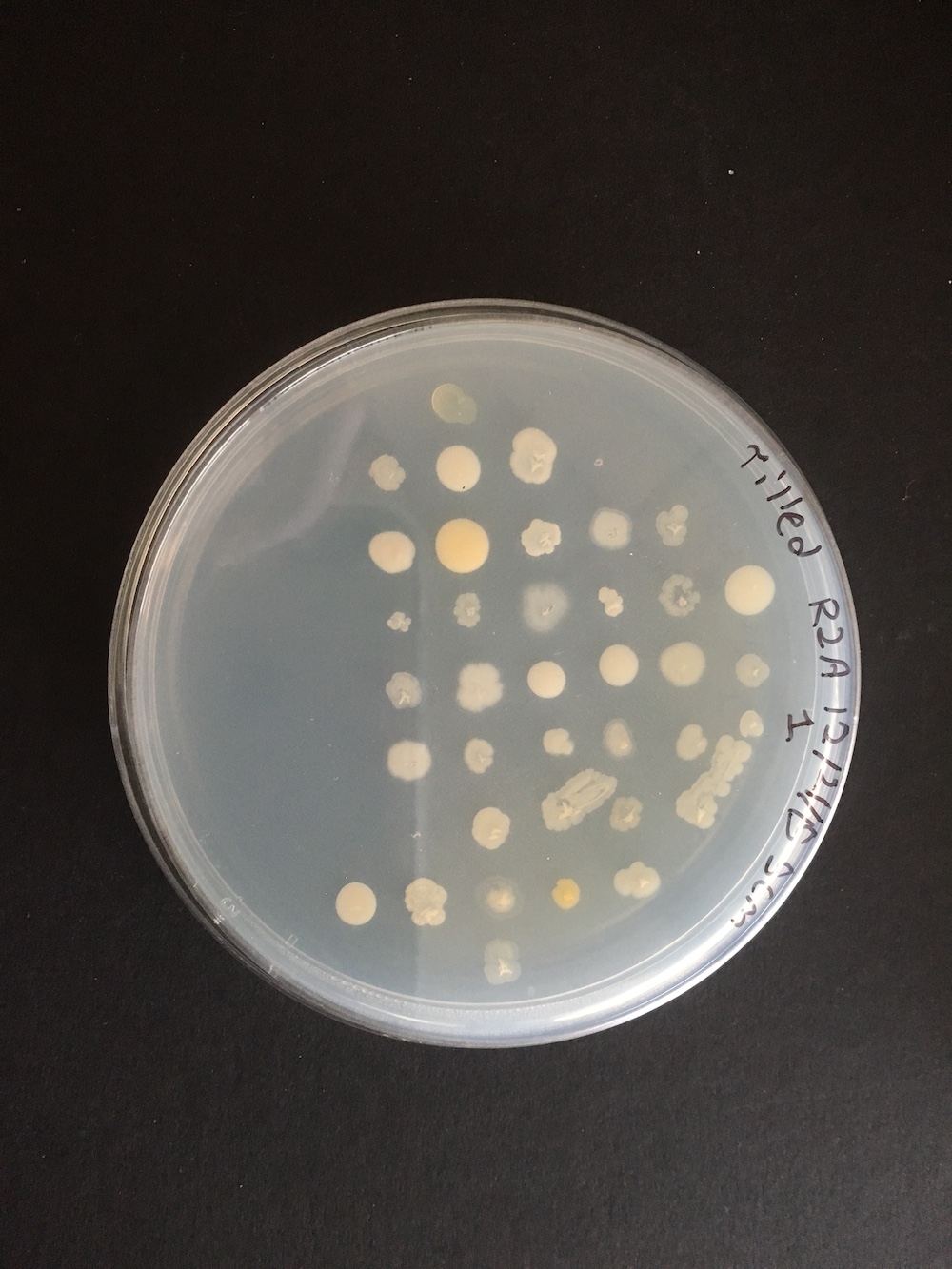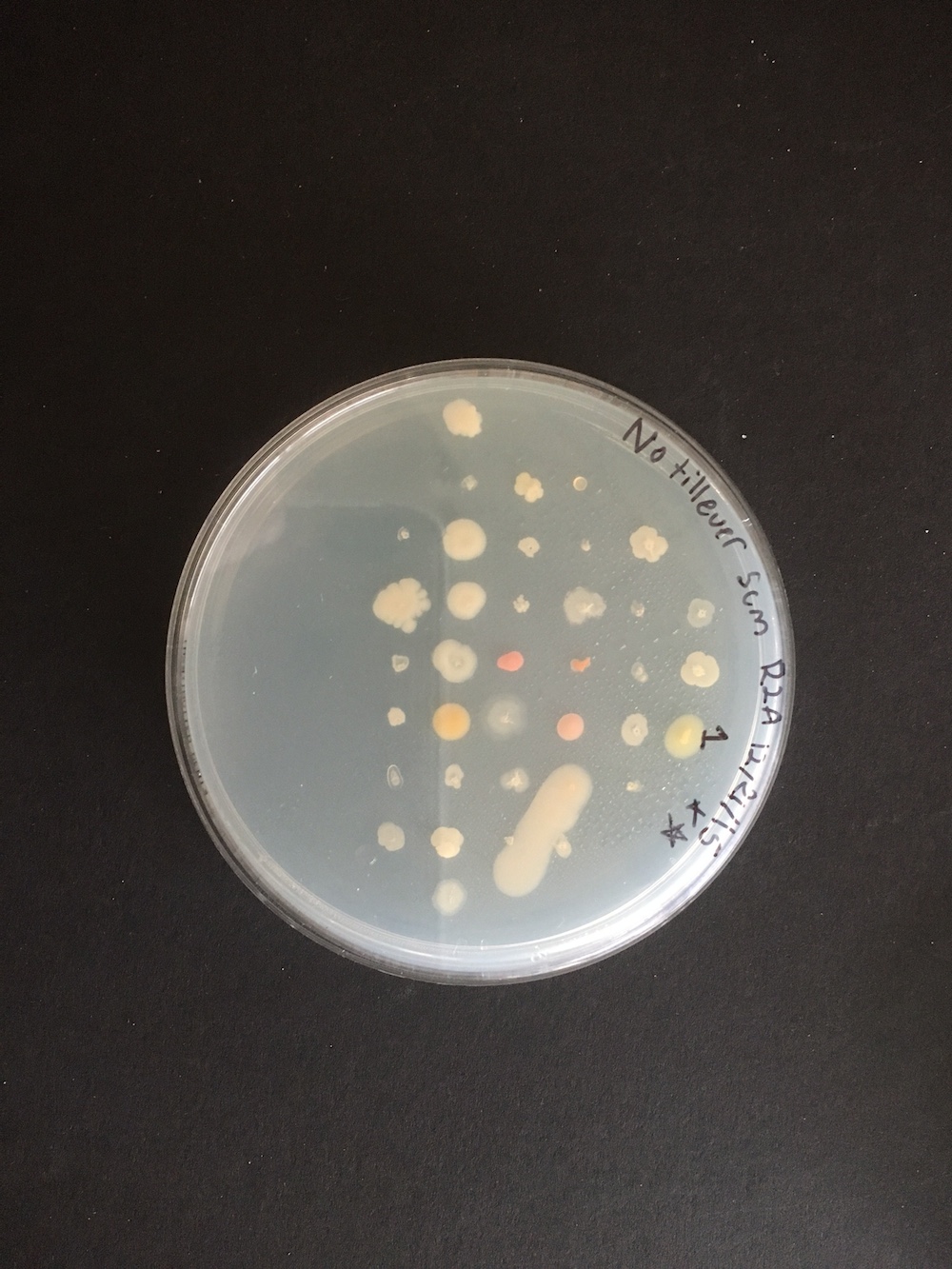Project title: A Study of Microbial Communities From Till and No-Till Missouri Soils Using Genetic Fingerprinting
Abstract:
In agriculture, soil microbial communities can have a significant impact on plant growth and strongly influence the characteristics and health of the soil itself. Turning the top layer of soil over prior to planting has been a popular tool in the past for cultivating crops, however, excessive tilling can have negative effects. Tilling disrupts soil structure, creates hardpans, disturbs natural microbial communities, causes loss of nitrogen and organic matter, releases stored carbon and exposes the soil to erosion. Examination of soil samples from tilled and no-till fields provides a unique picture of the impacts of land management on microbial biodiversity within farming soil. Soil cores extracted from fields in close proximity under different tillage practices were profiled for type, texture, pH, nutrients, organic matter and active carbon. No-till and tilled soil from depths ranging from 0 (surface) to 35 cm into the soil cores were used to generate a bacterial isolate collection. Degenerate DNA primers were used to amplify 16S rRNA genes from a subset of isolates. Subsequent DNA sequence analysis was performed to identify the microbes. Additionally, whole soil DNA was isolated from till and no-till soil and a second set of 16S DNA primers, one including a GC clamp at its 5’ end, was used to amplify ~500 bp PCR fragments for denaturing gradient gel electrophoresis (DGGE) to examine potential differences in microbial community structure. While the study is ongoing, preliminary results indicate that differences in microbiome diversity exists in till vs. non-tilled soil.
a. 
Figure 1. Bacterial isolate collection from tilled soil (a) and non-tilled soil (b).

